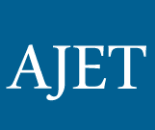
Australasian Journal of Educational Technology
Scope & Guideline
Advancing the Future of Learning Through Technology
Introduction
Aims and Scopes
- Educational Technology Research and Application:
The journal emphasizes empirical studies that investigate the effectiveness and implementation of educational technologies in various learning environments, including higher education and K-12 settings. - Teacher and Student Experiences:
AJET highlights research that explores the experiences of both educators and learners with technology, focusing on how these experiences influence teaching practices and learning outcomes. - Innovative Pedagogical Approaches:
The journal encourages submissions that present new pedagogical models and strategies enabled by technology, such as flipped classrooms, blended learning, and gamification. - Digital Literacy and Competence:
A core area of focus is the development of digital literacy and competencies among both students and educators, addressing how these skills impact engagement and learning efficacy. - Policy and Practice Implications:
AJET publishes research that informs policy and practice within educational institutions, aiming to bridge the gap between research findings and practical application in educational settings.
Trending and Emerging
- Artificial Intelligence in Education:
Research on the applications of artificial intelligence, including tools like ChatGPT, is rapidly increasing, highlighting its potential to enhance learning experiences and educational outcomes. - Interdisciplinary Learning and Collaboration:
There is a growing trend towards interdisciplinary approaches in educational technology research, emphasizing collaborative learning experiences that span multiple fields and domains. - Emotional and Psychological Factors in Learning:
Emerging studies focus on the role of emotions, motivation, and psychological factors in the acceptance and effectiveness of educational technologies, indicating a shift towards a more holistic understanding of learning. - Accessibility and Inclusivity in Technology Use:
Research addressing the accessibility of educational technologies and their role in promoting inclusivity among diverse student populations is gaining prominence, reflecting a commitment to equitable education. - Data-Driven Insights and Learning Analytics:
The use of learning analytics to inform teaching practices and improve student outcomes is an increasingly popular area of research, as institutions seek to leverage data for continuous improvement.
Declining or Waning
- Traditional Learning Theories:
Research based on conventional learning theories, such as behaviorism and cognitivism, appears to be diminishing as the field increasingly embraces constructivist and connectivist approaches driven by technology. - Face-to-Face Instructional Strategies:
With the rise of online and blended learning environments, studies focusing exclusively on traditional face-to-face instructional strategies have become less frequent, reflecting a broader shift towards digital pedagogies. - General Technology Acceptance Models:
While technology acceptance remains relevant, there is a noticeable decline in studies that rely solely on general models, such as TAM (Technology Acceptance Model), in favor of more nuanced frameworks that incorporate emotional and contextual factors. - Overemphasis on Technology as a Panacea:
Research that treats technology as a standalone solution to educational challenges is waning, as the field increasingly recognizes the importance of context, pedagogy, and human interaction in successful technology integration. - Narrow Focus on Specific Technologies:
There is a reduction in studies that focus solely on specific technologies (e.g., specific software tools) without considering broader educational implications or comparative analyses of multiple technologies.
Similar Journals
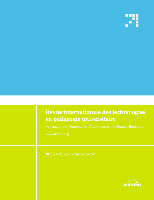
International Journal of Technologies in Higher Education
Fostering Innovation in Academic Learning EnvironmentsInternational Journal of Technologies in Higher Education, with ISSN 1708-7570 and E-ISSN 1708-7570, is a distinguished academic platform dedicated to advancing the intersection of technology and pedagogy in higher education. Published by INT JOURNAL TECHNOLOGIES HIGHER EDUCATION, this open-access journal has been at the forefront of educational innovation since 2004, providing researchers, practitioners, and students access to high-quality research without financial barriers. The journal aims to disseminate cutting-edge studies, best practices, and theoretical insights that explore the transformative impact of emerging technologies in the field of education. Situated in Montreal, Canada, the journal serves as a pivotal resource for those committed to enhancing learning environments through technological advancements. By fostering scholarly discussion and collaboration, the International Journal of Technologies in Higher Education plays an essential role in shaping the future of educational practices globally.

Technology Pedagogy and Education
Navigating the Evolving Landscape of Educational TechnologyTechnology Pedagogy and Education, published by Routledge Journals, Taylor & Francis Ltd, is a leading academic journal focused on the intersection of technology and educational practices. With an impact factor reflecting its significant contribution to the field, this journal provides a critical platform for disseminating innovative research and emerging trends in technology-enhanced learning. Serving as a resourceful hub since its inception in 2003, it has established itself in the top quartile of various categories, including Communication, Computer Science Applications, Education, and Information Systems. Researchers and educators alike will find the journal's insights invaluable as they navigate the ever-evolving landscape of educational technology. Although it does not currently offer open access options, its rigorous peer-review process ensures that only the highest quality research is published, making it essential reading for anyone invested in the educational sector.
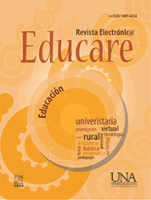
Revista Electronica Educare
Advancing Educational Research Without Barriers.Revista Electronica Educare, published by UNIV NACL, CIDE in Costa Rica, stands as a vital resource in the field of education, contributing significantly to the discourse since its inception in 2001. As an Open Access journal, it promotes the dissemination of educational research globally, ensuring that valuable findings are accessible to a wider audience without financial barriers. With an increasing impact factor reflected in its current categorization in the Q3 quartile for education sciences and a Scopus rank of #989 among 1543 in Social Sciences, the journal is recognized for its quality and relevance in contemporary educational studies. The journal covers a broad spectrum of topics within the educational landscape until 2024, making it an essential platform for researchers, professionals, and students eager to explore innovative pedagogical practices and share their insights with the academic community. As it continues to evolve and flourish, Revista Electronica Educare invites contributors and readers alike to engage with the cutting-edge of educational research.
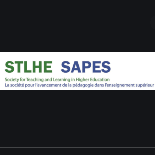
Canadian Journal for the Scholarship of Teaching and Learning
Exploring Evidence-Based Strategies for Effective LearningThe Canadian Journal for the Scholarship of Teaching and Learning (CJSoTL) is a premier open-access journal dedicated to advancing research and discourse in the field of teaching and learning within higher education. Published by SOC TEACHING & LEARNING HIGHER EDUCATION, CJSoTL serves as a vital resource for educators, researchers, and students alike, promoting evidence-based practices and scholarship in higher education pedagogy. Since its inception in 2010, the journal has provided an inclusive platform for innovative research, case studies, and pedagogical strategies that enhance teaching effectiveness and student learning outcomes. Although specific metrics such as H-index and Scopus ranks are currently unlisted, the journal is committed to fostering a community of practice among scholars dedicated to improving teaching and learning environments. With its open-access policy, CJSoTL ensures that valuable knowledge is freely available, aligning with contemporary trends in academic dissemination and accessibility, thus making significant contributions to the scholarship of teaching and learning in Canada and beyond.
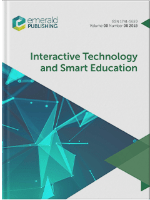
Interactive Technology and Smart Education
Transforming education through interactive innovation.Interactive Technology and Smart Education is a leading academic journal published by EMERALD GROUP PUBLISHING LTD, dedicated to exploring the dynamic intersection of technology and education. With a robust impact factor signifying its significant contributions to the field, this journal consistently ranks in the Q1 quartile in categories such as Computer Science (Miscellaneous), Education, and E-learning, reflecting its prestige and wide-ranging influence. A staple for researchers, educators, and industry professionals, the journal addresses innovative practices and developments in interactive technologies that enhance teaching and learning experiences. Operating from its base in the United Kingdom, the journal spans nearly two decades of impactful publishing, featuring high-quality research that plays a crucial role in shaping the future of education through technology. Scholars seeking to stay at the forefront of this evolving field are encouraged to contribute and engage with the journal's pioneering work.

Technology Knowledge and Learning
Shaping the Future of Educational Technology ResearchTechnology Knowledge and Learning, published by SPRINGER, stands as a pivotal platform in the realms of computational theory, computer science, education, and human-computer interaction. With an impressive impact factor reflecting its reputation, this journal has consistently ranked in the Q1 quartile across multiple categories as of 2023, including Computational Theory and Mathematics, Education, and Engineering. Spanning a timeline from 2011 to 2024, it serves as an essential resource for those engaged in exploring the intersections of technology, pedagogy, and knowledge transfer, thereby facilitating advancements in both theory and practical applications. Although it is not an open-access journal, the rigorous peer-review process ensures that only the highest quality research contributes to its esteemed reputation. By providing a platform for innovative research and discussions, Technology Knowledge and Learning plays a crucial role in shaping the future of technological education and applications, making it an invaluable resource for researchers, professionals, and students alike, seeking to stay at the forefront of this dynamic field.

E-Learning and Digital Media
Navigating the evolving landscape of digital education.E-Learning and Digital Media, published by SAGE Publications Inc, is a premier academic journal dedicated to the innovative intersection of digital technologies and education. With a strong commitment to advancing research in the fields of education and computer science, this journal has established itself as a vital resource for researchers, professionals, and students alike. As of 2023, it proudly holds a Q2 ranking in both Computer Science Applications and Education, reflecting its impact and reach within the academic community. The journal encompasses a wide range of topics exploring the effectiveness and applications of e-learning technologies, pedagogical strategies, and digital media in educational settings. Since its inception in 2009, E-Learning and Digital Media has continuously contributed to the understanding and development of digital education, ensuring relevancy in an ever-evolving landscape. With an open access model intended to foster accessibility and dissemination of knowledge, this journal invites submissions that push the boundaries of traditional education through cutting-edge research and practice.

Etic net-Revista Cientifica Electronica de Educacion y Comunicacion en la Sociedad del Conocimiento
Advancing Open Access for All in Knowledge SocietyEtic net-Revista Cientifica Electronica de Educacion y Comunicacion en la Sociedad del Conocimiento, published by UNIV GRANADA, is a pioneering open-access journal dedicated to the exploration and dissemination of research in the fields of education and communication within the context of knowledge society. Since its inception in 2002, this journal has provided a platform for scholars, researchers, and practitioners to share innovative ideas and empirical studies, fostering critical dialogue and collaboration in the rapidly evolving landscape of digital education and communication. With its ISSN 1695-324X, Etic net aims to bridge theoretical frameworks and practical applications, contributing significantly to the scholarly discourse and practices that shape contemporary educational experiences globally. Through its commitment to open access, the journal ensures that high-quality research is freely available to all, promoting inclusivity and accessibility in academic publishing. We invite you to explore the latest findings and contribute to shaping the future of education and communication by engaging with this essential resource.
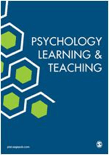
Psychology Learning and Teaching-PLAT
Advancing educational psychology through innovative insights.Psychology Learning and Teaching (PLAT) is a distinguished academic journal published by SAGE Publications Ltd, dedicated to advancing the field of educational psychology. With an ISSN of 1475-7257 and an E-ISSN of 2057-3022, this journal serves as a vital resource for researchers, educators, and practitioners seeking to explore innovative teaching methodologies and learning strategies within the context of psychology. As of 2023, its reputation is underscored by its Q1 ranking in Education and Q2 ranking in Psychology (miscellaneous), reflecting its significant contributions to the scholarly community. Placing an emphasis on empirical research and practical application, PLAT publishes research that not only enhances educational practices but also addresses contemporary psychological issues. Open access options facilitate widespread dissemination of knowledge, while its robust impact factor highlights its influence within the educational and psychological discourse. This journal is essential for anyone committed to the intersection of psychology and education, providing thought-provoking insights that inspire ongoing dialogue and development in the field.
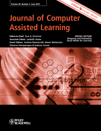
JOURNAL OF COMPUTER ASSISTED LEARNING
Revolutionizing Learning Experiences with TechnologyWelcome to the JOURNAL OF COMPUTER ASSISTED LEARNING, a premier publication dedicated to the advancement of research in the fields of computer science applications, education, and e-learning. Published by WILEY, this journal has earned a prestigious reputation, holding a Q1 quartile ranking in both its primary categories for the year 2023. With its extensive reach since its inception in 1985, it features cutting-edge research that stimulates innovative practices in educational technology and pedagogical methods. Recognized for its impact with a remarkable Scopus ranking — 57th in Social Sciences/Education and 105th in Computer Science — the journal is a vital resource for scholars, educators, and practitioners looking to deepen their understanding of how technology enhances learning experiences. Although the journal is not open access, its commitment to quality research continues to resonate across the UK and globally, making it an essential platform for those engaged in enhancing educational outcomes through technology.